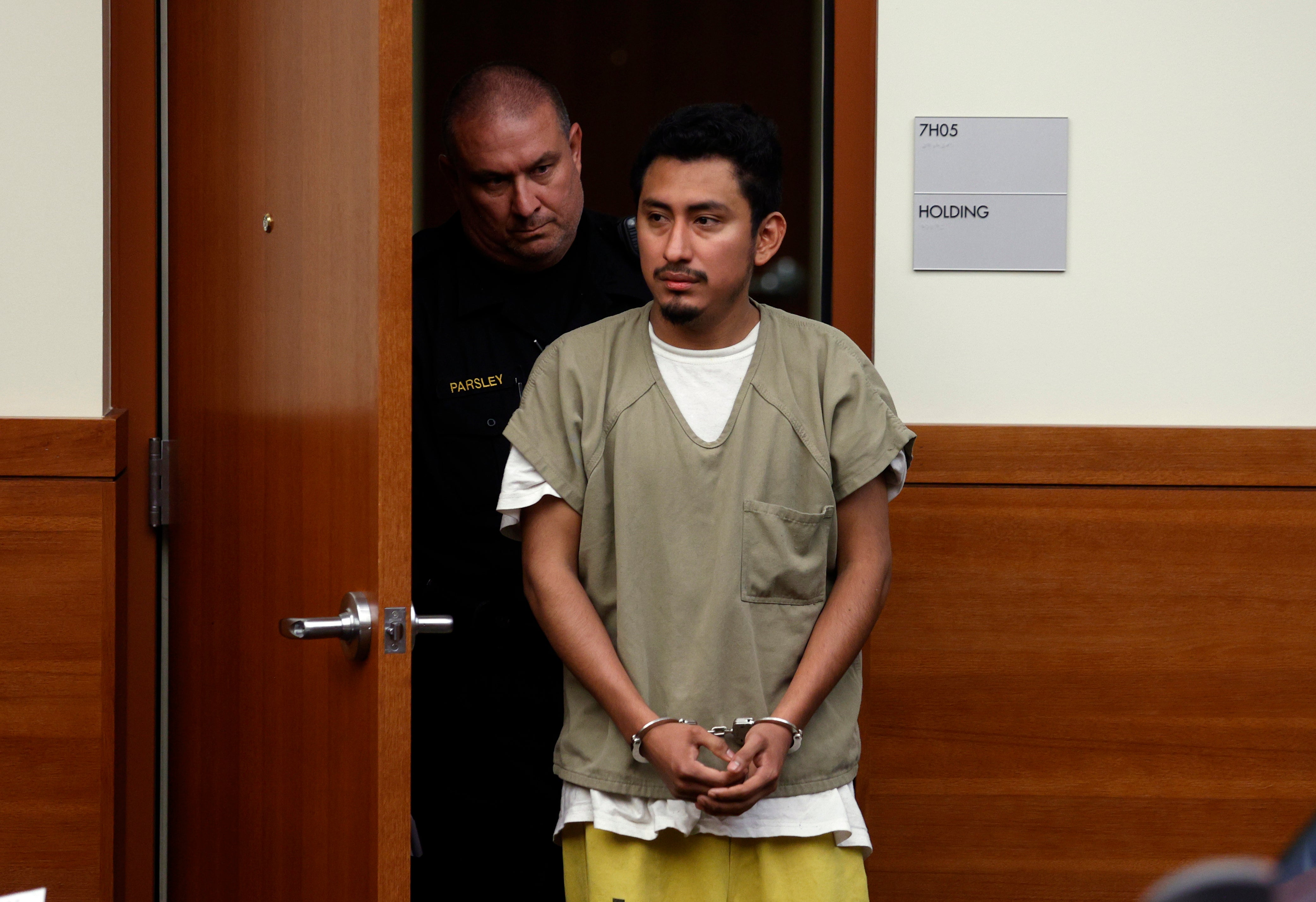Man sentenced to life in prison for rape of 10-year-old girl in Ohio abortion case that drew national attention
Gerson Fuentes will serve at least 25 years in prison after pleading guilty to rape in a case that right-wing pundits falsely dismissed as a hoax in the aftermath of Roe v Wade
The man charged with raping a 10-year-old girl in Ohio who had to seek abortion care in Indiana last year was immediately sentenced to life in prison after changing his plea to guilty.
Gerson Fuentes was charged with two felony counts of rape in a case that drew national scrutiny in the aftermath of the US Supreme Court’s decision to overturn Roe v Wade, triggering a wave of state-level abortion bans that have created legal and medical minefields for providers and their patients across the US.
On 5 July, Fuentes was sentenced to life in prison, with a possibility of parole after a minimum of 25 years.
After the Supreme Court struck down a constitutional right to abortion last June, officials in Ohio – among several states that do not provide any exceptions for abortions from pregnancies resulting from rape or incest – swiftly outlawed abortion after roughly six weeks of pregnancy.
Roughly one week later, a 10-year-old girl and her mother were referred to a provider in neighbouring Indiana, where they could legally seek abortion care. The story became an instant political lightning rod, with abortion rights advocates pointing to the dangerous and far-reaching implications of sweeping bans on care, while right-wing pundits and officials falsely dismissed the case as a hoax.
Fuentes’s new plea was in exchange for a jointly recommended prison sentence of life in prison with the possibility of parole after a minimum of 25 years, according to Assistant Franklin County Prosecutor Dan Meyer. Fuentes also could face an additional five years in prison
Ohio Common Pleas Court Judge Julie Lynch she would have sentenced Fuentes to life in prison without possibility of parole, if the girl’s family had not “begged” her to agree to the sentence, a “very hard pill for this court to swallow,” the judge said.
“Anyone who’s ever been in this courtroom for the last 20 years knows how this court feels about these babies, young people, being violated,” Judge Lynch said, according to the Columbus Dispatch.
“However, today, by the request of the family, this court will be sentencing without comment and everyone knows how hard that’s going to be. Because the court considers this the worst of the offense,” she added.

Obstetrician-gynecologist Dr Caitlin Bernard, who had briefly mentioned the case to reporters last year, was reprimanded by Republican state officials and targeted by right-wing media, who falsely suggested that the crime against the 10-year-old girl was fake, demanded to see criminal and medical records, and fuelled a barrage of attacks baselessly accusing the doctor of failing to notify law enforcement about her patient’s case.
Records and testimony have shown that the case was reported to state agencies as required under law.
Attorneys for Dr Bernard have lambasted the Indiana attorney general’s legal campaign against her as baseless and politically motivated.
On 25 May, Indiana’s Medical Licensing Board determined she had violated patient privacy laws by speaking to a reporter about the case, but GOP officials failed to revoke her license, which they had sought as punishment.
Her attorney Alice Morical said in a statement that Dr Bernard was grateful that the medical board exonerated her from the false allegations against her.
“Dr Bernard bravely stood up for access to compassionate medical care and she is a consummate professional who deserves to care for her patients without reproach,” Ms Morical said.
More than a dozen states have effectively outlawed abortion in most cases within the year after the Supreme Court’s decision in Dobbs v Jackson Women’s Health Organization.
Indiana lawmakers also approved a near-total abortion ban in the state, with exceptions for rape, incest, and potentially fatal medical complications, but a judge temporarily blocked the law, among several across the US that have been paused by the courts. The state was the first to implement new abortion restrictions after the Dobbs decision.
But on 30 June, Indiana’s highest court ruled that while the state’s constitution gaurantees a right to abortion, it is only allowed when it is necessary to save the life of the pregnant patient or in the event of a serious health risk.
In Ohio, voters this fall appear likely to weigh in on a proposed state constitutional amendment to enshrine the right to abortion care.
A coalition of abortion rights groups announced this week it collected more than 710,000 signatures, nearly twice the number required, to place an amendment on ballots in November.




